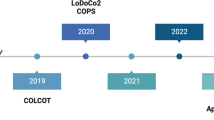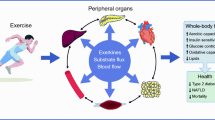Abstract
Purpose of Review
This review examines recent randomized clinical trials evaluating the role of coenzyme Q10 (CoQ10) in the management of coronary heart disease.
Recent Findings
CoQ10 is one of the most commonly used dietary supplements in the USA. Due to its antioxidant and anti-inflammatory effects, CoQ10 has been studied extensively for possible use in managing coronary heart disease. One of the most common applications of CoQ10 is to mitigate statin-associated muscle symptoms (SAMS) based on the theory that SAMS are caused by statin depletion of CoQ10 in the muscle. Although previous studies of CoQ10 for SAMS have produced mixed results, CoQ10 appears to be safe. Because CoQ10 is a cofactor in the generation of adenosine triphosphate, supplementation has also recently been studied in patients with heart failure, which is inherently an energy deprived state. The Q-SYMBIO trial found that CoQ10 supplementation in patients with heart failure not only improved functional capacity, but also significantly reduced cardiovascular events and mortality. Despite these positive findings, a larger prospective trial is warranted to support routine use of CoQ10. Less impressive are the effects of CoQ10 on specific cardiovascular risk factors such as blood pressure, dyslipidemia, and glycemic control.
Summary
Current evidence does not support routine use of CoQ10 in patients with coronary heart disease. Additional studies are warranted to fully determine the benefit of CoQ10 in patients with heart failure before including it in guideline-directed medical therapy.

Similar content being viewed by others
References
Papers of particular interest, published recently, have been highlighted as: • Of importance •• Of major importance
• Clarke TC, Black LI, Stussman BJ, Barnes PM, Nahin RL. Trends in the use of complementary health approaches among adults: United States, 2002–2012. National health statistics reports; no 79. Hyattsville, MD: National Center for Health Statistics. 2015. Discusses increase in use of co-enzyme Q10 over time.
Benjamin EJ, Virani SS, Callaway CW, Chang AR, Cheng C, Chiuve SE, et al. Heart Disease and Stroke Statistics—2018 update: a report from the American Heart Association. Circulation 2018;137; https://doi.org/10.1161/CIR.0000000000000558
Littarru GP, Bruge F, Tiano L. Biochemistry of coenzyme Q10. In: Balercia G, et al., editors. Antioxidants in andrology, trends in andrology and sexual medicine. Switzlerland: Springer International Publishing; 2017. https://doi.org/10.1007/978-3-319-41749-3_2.
Saini R. Coenzyme Q10: the essential nutrient. J Pharm Bioallied Sci. 2011;3(3):466–7. https://doi.org/10.4103/0975-7406.84471.
Haynes RB, McKibbon KA, Wilczynski NL, Walter SD, Werre SR. Optimal search strategies for retrieving scientifically strong studies of treatment from Medline: analytical survey. BMJ. 2005;330(7501):1179. https://doi.org/10.1136/bmj.38446.498542.8F.
Abdollahzad H, Alipourb B, Aghdashic MA, Jafarabadid MA. Coenzyme Q10 supplementation in patients with rheumatoid arthritis: are there any effects on cardiovascular risk factors? Eur J Integr Med. 2015;7(5):534–9.
Aljawad FH, Hashim HM, Jasim GA, Kadhim HM, Gorgi AQ, Jawad RF. Effects of atorvastatin and coenzyme Q10 on glycemic control and lipid profile in type 2 diabetic patients. Int J Pharm Sci Rev Res. 2015;34(2):183–6.
Mohseni M, Vafa MR, Hajimiresmail SJ, Zarrati M, Rahimi Forushani A, Bitarafan V, et al. Effects of coenzyme q10 supplementation on serum lipoproteins, plasma fibrinogen, and blood pressure in patients with hyperlipidemia and myocardial infarction. Iran Red Crescent Med J. 2014;16(10):e16433. https://doi.org/10.5812/ircmj.16433.
Young JM, Florkowski CM, Molyneux SL, McEwan RG, Frampton CM, Nicholls MG, et al. A randomized, double-blind, placebo-controlled crossover study of coenzyme Q10 therapy in hypertensive patients with the metabolic syndrome. Am J Hypertens. 2012;25(2):261–70. https://doi.org/10.1038/ajh.2011.209.
Zahedi H, Eghtesadi S, Seifirad S, Rezaee N, Shidfar F, Heydari I, et al. Effects of CoQ10 supplementation on lipid profiles and glycemic control in patients with type 2 diabetes: a randomized, double blind, placebo-controlled trial. J Diabetes Metab Disord. 2014;13:81. https://doi.org/10.1186/s40200-014-0081-6.
•• Mortensen SA, Rosenfeldt F, Kumar A, Dolliner P, Filipiak KJ, et al. The effect of coenzyme Q10 on morbidity and mortality in chronic heart failure: results from Q-SYMBIO: a randomized double-blind trial. JACC Heart Fail. 2014;2(6):641–9. https://doi.org/10.1016/j.jchf.2014.06.008. First randomized double-blind trial demonstrating co-enzyme Q10 may reduce morbidity and mortality in patients with heart failure.
Skarlovnik A, Janic M, Lunder M, Turk M, Sabovic M. Coenzyme Q10 supplementation decreases statin-replaced mild-to-moderate muscle symptoms: a randomized clinical study. Med Sci Monir. 2014;20:2183–8. https://doi.org/10.12659/MSM.890777.
Buettner C, Davis RB, Phillips RS, Mittleman MA. CoQ10 does not improve statin myalgia—a randomized controlled trial [abstract]. Atherosclerosis. 2015;e206:241.
Mazirka P, Jones E, Strachan P, McNurlan M, Lawson W, Caso G. Effect of coenzyme Q10 supplementation in patients with statin-related myalgia [abstract]. FASEB J. 2015;29(1_supplement):LB334.
Taylor BA, Lorson L, White M, Thompson PD. A randomized trial of coenzyme Q10 in patients with confirmed statin myopathy. Atherosclerosis. 2015;238(2):329–35. https://doi.org/10.1016/j.atherosclerosis.2014.12.016.
Marcoff L, Thompson PD. The role of coenzyme Q10 in statin associated myopathy. System Rev J Am Coll Cardiol. 2007;49(23):2231–7.
•• Banach Maciej SC, Sahebkar A, Ursoniu S, Rysz J, Muntner P, et al. Effects of coenzyme Q10 on statin-induced myopathy: a meta-analysis of randomized controlled trials. Mayo Clin Proc. 2015;90(1):23–34. https://doi.org/10.1016/j.mayocp.2014.08.021. Meta-analysis of previously conducted randomized clinical trials evaluating use of co-enzyme Q10 for statin-induced myopathy.
Mortensen SA. Overview of coenzyme Q10 as adjunctive therapy in chronic heart failure. Rationale, design and end-points of “Q-symbio”—a multinational trial. Biofactors. 2003;18(1–4):79–89.
Beal MF. Therapeutic approaches to mitrochondrial dysfunction in Parkinson’s disease. Parkinsonism Relat Disord. 2009;15(Suppl 3):S189–94. https://doi.org/10.1016/S1353-8020(09)70812-0.
Ventura-Clapier R, Garnier A, Veksler V. Energy metabolism in heart failure. J Physiol. 2004;555(Pt 1):1–13. https://doi.org/10.1113/jphysiol.2003.055095.
Folkers K, Vadhanavikit S, Mortensen S. Biochemical rationale and myocardial tissue data on the effective therapy of cardiomyopathy with coenzyme Q10. Proc Natl Acad Sci U S A. 1985;82:901–4. https://doi.org/10.1073/pnas.82.3.901.
Belch JJ, Bridges AB, Scott N, Chopra M. Oxygen free radicals and congestive heart failure. Br Hreat J. 1991;65:245–8. https://doi.org/10.1136/hrt.65.5.245.
Fotino AD, Thompson-Paul AM, Bazzano LA. Effect of coenzyme Q10 supplementation on heart-failure: a meta-analysis. J Clin Nutr. 2013;97(2):268–75. https://doi.org/10.3945/ajcn.112.040741.
Madmani ME, Yusuf Solaiman A, Tamr Agha K, Madmani Y, Shahrour Y, Essali A, et al. Coenzyme Q10 for heart failure. Cochrane Database Syst Rev. 2014;6:CD008684. https://doi.org/10.1002/14651858.CD008684.pub2.
Heck AM, DeWitt BA, Lukes AL. Potential interactions between alternative therapies and warfarin. Am J Health Syst Pharm. 2000;57:1221–7.
Yancy CW, Jessup M, Bozkurt B, Butler J, Casey DE Jr, et al. 2013 ACCF/AHA guideline for the management of heart failure: a report of the American College of Cardiology Foundation/American Heart Association Task Force on Practice Guidelines. J Am Coll Cardiol. 2013;62(16):e147–239. https://doi.org/10.1016/j.jacc.2013.05.019.
Chew GT, Watts GF. Coenzyme Q 10 and diabetic endotheliopathy: oxidative stress and the ‘recoupling hypothesis. Q J Med. 2004;97:537–48. https://doi.org/10.1093/qjmed/hch089.
Digiesi V, Cantinit F, Oradei A, Bisi G, Guarino GC, Brocchi A, et al. Coenzyme Q10 in essential hypertension. Molec Aspects Med. 1994;15(Suppl):s257–63.
Pepe S, Marasco SF, Haas SJ, Sheeran FL, Krum H, Rosenfeldt FL. Coenzyme Q10 in cardiovascular disease. Mitochondrion. 2007;7(7 Suppl):S154–67.
Yamagami T, Shibata N, Folkers K. Bioenergetics in clinical medicine. Studies on coenzyme Q10 and essential hypertension. Res Commun Chem Pathol Pharmacol. 1975;11(2):273–88.
Gönenç A, Hacışevki A, Tavil Y, Çengel A, Torun M. Oxidative stress in patients with essential hypertension: a comparison of dippers and non-dippers. Eur J Intern Med. 2013;24(2):139–44. https://doi.org/10.1016/j.ejim.2012.08.016.
Mohr D, Bowry VW, Stocker R. Dietary supplementation with coenzyme Q10 results in increased levels of ubiquinol-10 within circulating lipoproteins and increased resistance of human low-density lipoprotein to the initiation of lipid peroxidation. Biochim Biophys Acta. 1992;1126(3):247–54.
Author information
Authors and Affiliations
Corresponding author
Ethics declarations
Conflict of Interest
Jessica Ayers, Jamie Cook, Rachel A. Koenig, Evan M. Sisson, and Dave L. Dixon declare no conflict of interest.
Human and Animal Rights and Informed Consent
This article does not contain any studies with human or animal subjects performed by any of the authors.
Additional information
This article is part of the Topical Collection on Coronary Heart Disease
Rights and permissions
About this article
Cite this article
Ayers, J., Cook, J., Koenig, R.A. et al. Recent Developments in the Role of Coenzyme Q10 for Coronary Heart Disease: a Systematic Review. Curr Atheroscler Rep 20, 29 (2018). https://doi.org/10.1007/s11883-018-0730-1
Published:
DOI: https://doi.org/10.1007/s11883-018-0730-1




